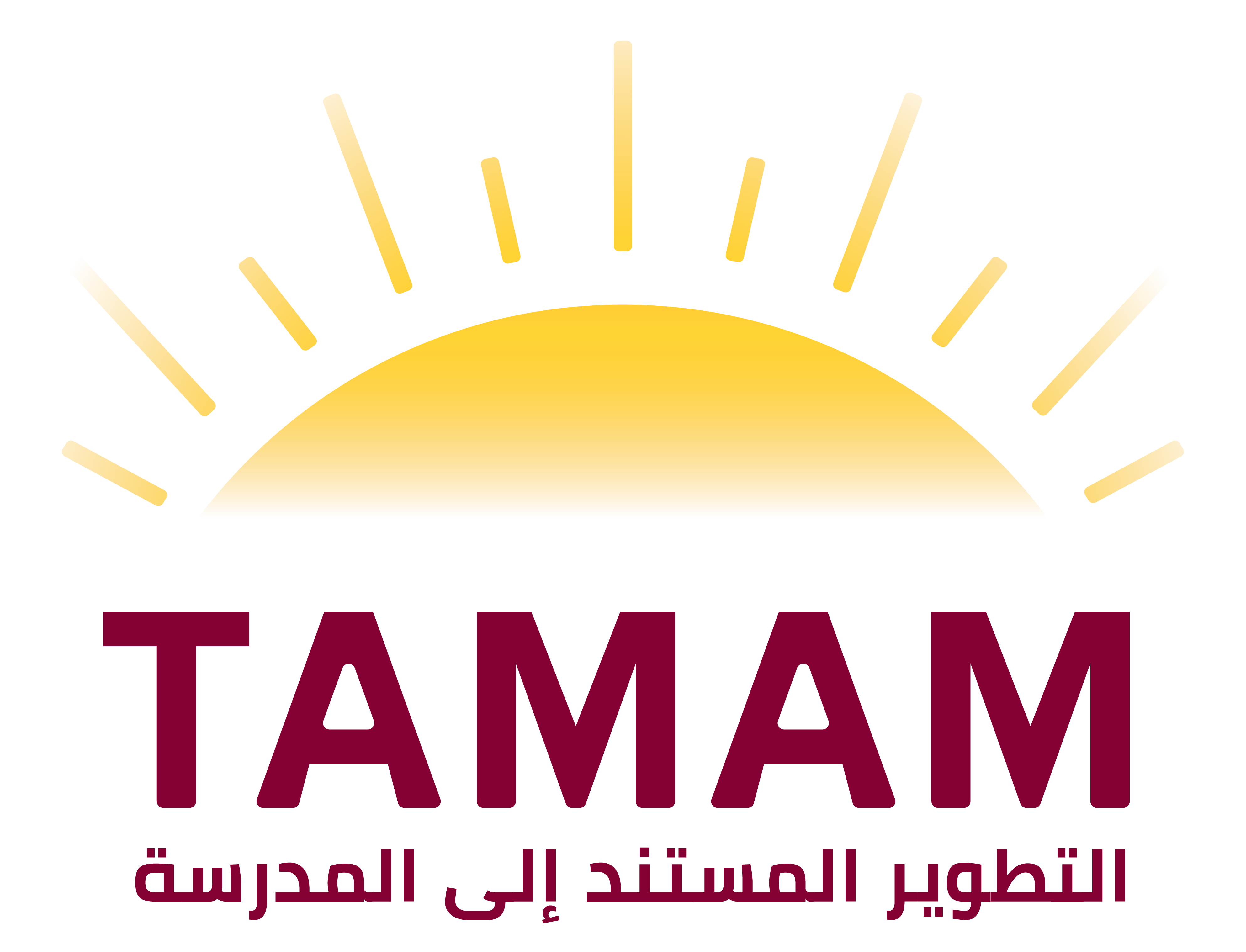This study explored the role that governance plays in enabling and sustaining school-based improvement through the TAMAM project experience with six public schools which have been partnered with it since 2015 and which constitute part of its hub in Lebanon. It aimed to find out which governance components have challenged or facilitated the selected schools’ organizational performance, particularly the implementation of their improvement projects and staff’s readiness to innovate. The study adopted a qualitative methodology and collected data mainly through the analysis of documents. This documented data was of a wide variety and comprised transcripts of raw data, memos from interviews, project progress reports, and technical reports. The analyzed data fell into two main categories: those primarily accessed through a subset of the TAMAM project databank and secondly those made publicly accessible on governmental websites in the form of legislative decrees. Following this, I analyzed data using mainly a deductive process with predetermined codes developed from a conceptual framework which I synthesized from the lessons learnt of prominent researchers’ empirical studies about how we can sustain school improvement through governance as well as studies which explored practical applications of a decentralized governance model known as the school-based management model. I then sorted this data into these generated codes and made a comparison between the two to form an in-depth understanding of the studied phenomenon. As a final step, I left room for some form of inductive analysis to occur and alternative themes to emerge. The study found three governance components which facilitated schools’ implementation of their improvement projects in the context of the study. Namely, these were the established trust and positive informal communication channels with governmental supervisors; the informal mentorship that school principals received from officials versed in the governance structure and system functioning; and the municipal financial support. As for the governance components which were found to hinder implementation, the study found seven of them. The first three were the absence of formalized two-way, consistent communication with governmental supervisors; the lack of municipal coordination in support of schools’ improvement initiatives; and the lack of clear communication and sufficient information provided by the ministry about mandated educational policies and initiatives. The remaining four were overloading schools with top-down projects which were not aligned with their own initiatives; the centralized decision-making process in the ministry; the mismanagement in the task allocation of schools’ human resources; and the absence of regular teacher training opportunities which are responsive to the needs of teachers. As for the second part of the study’s research question exploring the effect of governance on school lead team’s readiness to innovate, the study only found derailing governance components. Namely, these were the presence of an outdated, restrictive mandated curriculum; the absence of mentors limiting teachers’ ability to generate innovative ideas; prescribed professional development that does not cater to teachers’ personal aspirations; lack of sustainable resources for teachers’ engagement in innovation; and lack of emphasis on professional qualification in teacher recruitment. Finally, the study discussed the results through a comparative lens with the proposed conceptual framework and the literature to help generate informed recommendations for future research and practice. One recommendation for future research was to conduct a comparative study between schools which are partnered with TAMAM and public schools whose practitioners have only taken part in top-down improvement initiatives mandated by the ministry or schools whose practitioners have yet to acquire the needed competencies to lead and enact school-based improvement. As for the recommendations for practice, one of the study’s main recommendations was to devolve more decision-making power to regional education office staff members so that educational decisions become informed by schools’ needs and are responsive and timely to requests submitted by schools.
محام وشريك مؤسس في مكتب رشيد فهمي كرامي للمحاماة والإستشارات القانونية. محكم ووسيط دولي معتمد لدى عدد من المراكز المحلية والعالمية. مدرب معتمد على الوساطة والتحكيم لدى نقابة المحامين في طرابلس ومركز التسوية الفعالة للنزاعات– لندن ومعهد المحكمين القانونين. وضع وشارك في العديد من الدورات التدريبية المحلية والدولية المتعلقة بالوساطة والتحكيم. تولى وضع عدة مشاريع قوانين أبرزها مشروع قانون الوساطة المعتمد من نقابة المحامين في طرابلس والمناقش حالياً أمام اللجان النيابية المختصة. كما تولى وضع قواعد مركز الوساطة والتحكيم في نقابة المحامين في طرابلس. بالإضافة الى إعداد عدد من الدراسات القانونية والمتعلقة بالوساطة والوسائل البديلة لحلّ النزاعات. خبير سابق في الوساطة لدى مؤسسة التمويل الدولية. مستشار وزير الشؤون الإجتماعية لشؤون المرأة والطفل والمشرف على خطة وزارة الشؤون الموضوعة لحماية المرأة والطفل والموقعة مع الـيونيسف. عضو في جمعية بيت التدريب والحوار
